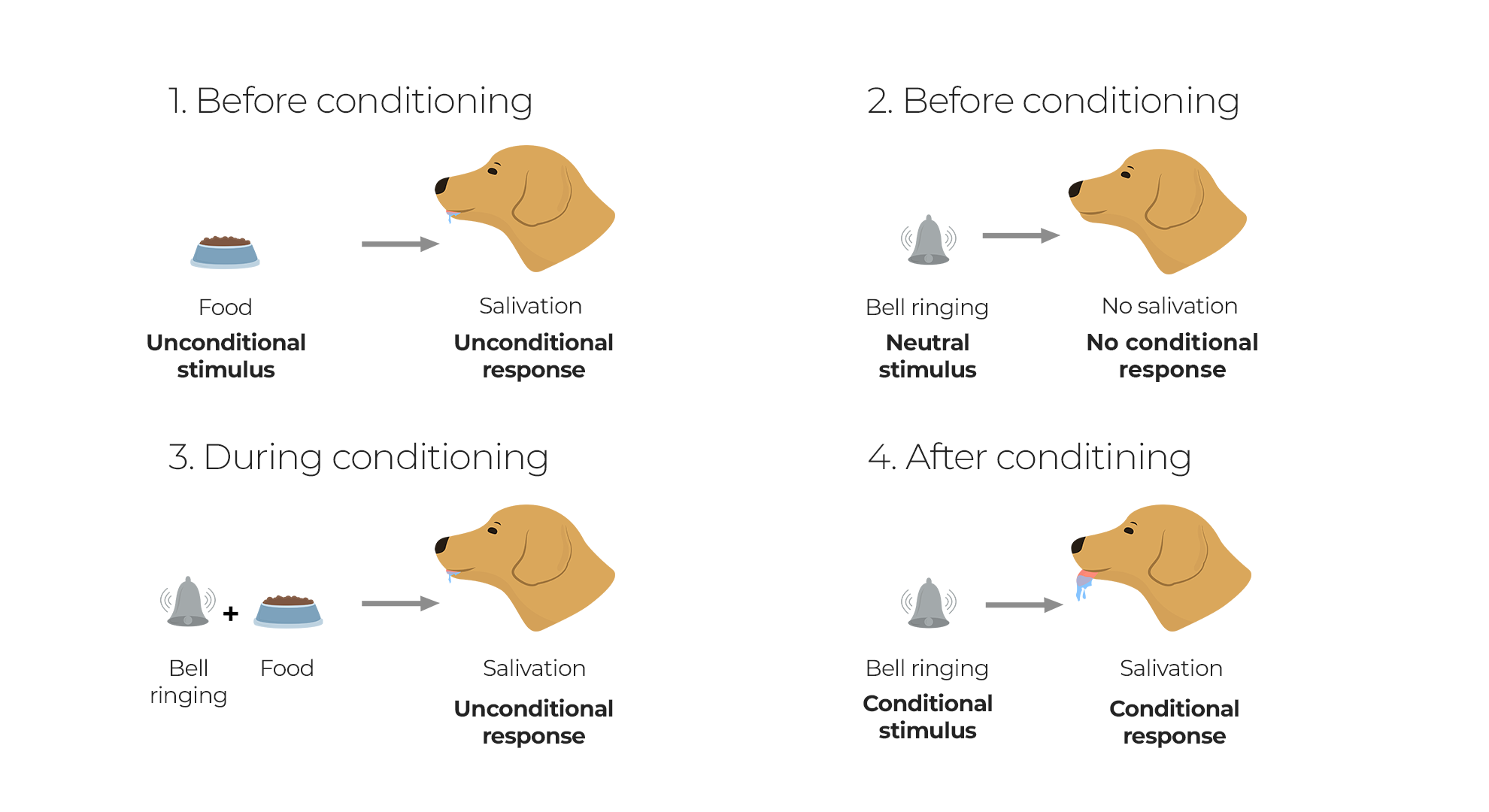

Reinforcement can be either positive where a positive reward is added, or negative, where an undesirable aspect is removed. In theory, behavior followed by reinforcement will increase and continue, while punishment to behavior will result in its decrease and cessation. This type of conditioning focuses on changes to voluntary behavior which is followed by either reinforcement or punishment. He is known for building on Pavlov’s classical conditioning research and identifying what is known as operant (also known as instrumental) conditioning. Skinner was an American psychologist, behaviorist, and social philosopher working in the mid-20th century. After repeated exposure, the sound becomes a conditioned stimulus, while salivation becomes a conditioned response (Myers & DeWall, 2016). However, a sound associated with food is a neutral stimulus since it is not the food itself, but simply an indicator that it is coming. Biological beings have little conscious control over salivation as it is instinctual and does not need to be trained. Salivation is a response to food is a naturally occurring unconditioned response. Pavlov determined this was a learned response that stipulated the conditioning process. The salivation occurred even before the food was presented. As a physiologist, Pavlov noticed that dogs began to salivate when hearing a sound associated with feeding times. Most people are familiar with Pavlov’s dog experiment where he drew inspiration for the principle. He is known for identifying classical conditioning, a process that forms an association between a naturally existing stimulus and a neutral stimulus. Ivan Pavlov was a Russian physiologist who worked in the late 19 th and early 20th centuries. Pavlov’s classical conditioning which associates an involuntary response with a stimulus and Skinner’s operant condition that ties a voluntary behavior to a consequence are both behavior modification techniques that result in learning but differ significantly in their approaches to the process. These key concepts have been vital to the growth of behavioral science as well as the topic of significant debates.īoth theories are relevant not only in the field of psychology but have been put into application in various other sectors. The two theorists who pioneered well-known theories in this specialization are Ivan Pavlov who studied classical conditioning and B.F. Learned behaviors are a classical subject of behavioral psychology that attempts to understand how behaviors are acquired and established.


 0 kommentar(er)
0 kommentar(er)
